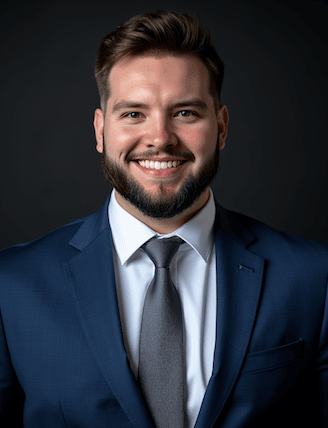How to determine if you should buy a house
Contributed by Karen Idelson, Tom McLean
Apr 30, 2025
•8-minute read

As of November 16, 2025, both Fannie Mae and Freddie Mac no longer have a minimum credit score threshold in their conventional loan eligibility guidelines. Loan approval will instead be based on an evaluation of overall credit risk factors.
Buying a house is a major financial commitment, which is why it’s important to make this decision with careful consideration. You should consider buying a house when you feel financially secure and stable. This includes having little to no debt, a good credit score, enough money for a down payment and a reliable source of income. It’s also important to consider market trends.
Consider the housing market before you buy
Understanding the current housing market can help you make a more informed decision about when to buy.
According to the National Association of REALTORS®, the median home price is expected to rise to $410,700 in 2025, which is about a 2% increase from 2024. By 2026, prices are projected to reach $420,000.
At the same time, Statista reports that home sales have declined since the peak of the pandemic-era boom in 2021. JP Morgan projects a modest 3% increase in home prices this year, and mortgage rates are expected to ease slightly to around 6.7% by the end of 2025.
These factors have contributed to what many analysts describe as a “largely frozen” market, where activity is limited but opportunities still exist.
While higher home prices and borrowing costs have affected affordability, buying could still be a smart move depending on your personal financial situation. If you have stable income, manageable debt, and plan to stay in one place for several years, purchasing a home now could work in your favor. If mortgage rates fall in the future, you may have the option to refinance. Lower rates could also spark increased demand, making it more competitive to buy later.
7 signs you should buy a house
Do you think you’re ready to buy a home? Check for these signs in your life to determine whether you’re ready to take the plunge into homeownership.
1. You’re in a buyer’s housing market
A buyer’s market occurs when there are more homes for sale than there are buyers actively looking. This shift in supply and demand puts potential buyers in a position to negotiate better prices, request seller concessions, and secure favorable terms. Homes in a buyer’s market tend to stay on the market longer, and sellers may be open to price reductions or closing cost assistance to sell the property.
As we move through 2025, market conditions are showing subtle signs of tipping in buyers’ favor. Mortgage rates are expected to ease slightly, and home price growth is beginning to cool. If you’re noticing properties in your area sitting longer or prices being adjusted downward, those are strong indicators that you could have more leverage as a buyer.
2. Your debt is under control
You might have some sort of debt, whether it’s student loans, credit card debt, or something else. Debt can prevent you from being able to save money, have a good credit score, and acquire a low debt-to-income ratio. However, if you’re well on your way to becoming debt-free, it might be a good time to think about buying a home.
Any extra cash flow you can use to spend on a home rather than on debt might be an easy revenue source to save for a down payment.
3. Your credit score is on the rise
Your credit score plays a major role in your ability to get a home loan. It’s usually lower when you’re just getting started in your career or you’ve just graduated from college. As you pay down your debt and prove yourself to be a dependable borrower over time, your credit score will go up. You can qualify for most mortgages with a credit score of at least 620.
4. You have money for a down payment
Contrary to popular belief, you don’t need a 20% down payment to buy a home. It’s possible to buy a home with as little as 3% down on a conventional loan or 3.5% down on a Federal Housing Administration loan. You might even be able to qualify for a Veterans Affairs loan or a U.S. Department of Agriculture loan with no down payment at all.
Much of the time, you’ll find that you benefit when you bring a larger down payment to the closing table. A 20% down payment will allow you to avoid paying for private mortgage insurance. PMI protects your lender if you default on your loan. Most lenders require that you pay PMI if you don’t put 20% down on your loan. You can save thousands of dollars in insurance costs over time with a solid down payment.
It might be time to use your money as a down payment if you have enough saved.
5. You have a reliable source of income
A reliable source of income is crucial to making monthly payments on your mortgage. Lenders also will consider your regular income when deciding how much they may be willing to lend you.
While there isn’t a specific minimum income needed to buy a house, there are ways to gauge whether you might have enough cash flow to get a loan. One way is to calculate your DTI ratio. Lenders use this to determine whether borrowers are reasonably able to take on more debt.
Although there isn’t a set amount of income needed for a mortgage, you need enough to meet the DTI requirements based on your loan product. Typically, most borrowers can be approved with a DTI below 50%.
6. You have a steady lifestyle
Buying a house is a big commitment, and most mortgages last 15 – 30 years. You don’t need to stay in your home for that long, but you should still be sure that you are ready for a potentially long financial commitment.
Don’t know where your career is going? Think you might want to move to a new city? Is your income a little unsteady? You might not be ready to buy a home. But if you think you might want to settle down, start a family or stay in one place for at least a few years, buying a home might be a smart move.
7. You’ve considered all the costs of homeownership
The true cost of homeownership goes far beyond your monthly payment. Some of the other costs of owning a home include:
- Insurance. Unlike car insurance, you’re not legally required to carry homeowners insurance when you own a home. However, mortgage lenders require you to have adequate insurance as a condition of your loan.
- Property taxes. You must pay property taxes no matter where you live. Property taxes go to local governments and pay for things like fire departments, public schools, and libraries. Local governments calculate property taxes as a percentage of your home’s value. The more your home is worth, the more you’ll pay.
- Closing costs. Closing costs are a one-time expense you pay to close on your loan. Your closing costs may include things like title insurance, attorney fees, lender fees and more. You can expect to pay 3% – 6% of your total loan value in closing costs.
- Utilities. Your landlord might cover some of your utility costs when you live in an apartment or a rented home. You need to make sure you can take care of your own water, electricity, trash collection and sewage bills each month when you own a home.
- Maintenance. You also need to make sure you can cover both your ongoing maintenance costs and repairs. Note that repair costs on an older home can take up a significant percentage of your monthly budget.
You might be ready to buy if you know you can cover all the costs of owning a home and not just your monthly payment.
4 signs you shouldn’t buy a house
It’s important to know when it’s a good time to buy a house – and when not to. If any of the following applies to you, it might be wise to stick with your current living situation for now.
1. You don’t have an emergency fund
You’re responsible for fixing anything that breaks down when you own your home. If you don’t have an emergency fund, you may quickly find yourself struggling with debt. Ideally, you should have an emergency fund that covers at least 3 months’ worth of living expenses before you think about getting a mortgage.
2. You have a lot of debt
You don’t need to be debt-free to buy a home, but too much debt can make it more difficult to get approved for a loan. More debt can also make your loan more expensive because you’ll be less likely to get the best mortgage rates. Create a plan to pay down your debts before you take on a monthly mortgage payment and all the other expenses of homeownership.
3. Your income isn’t stable
Career stability means you can anticipate how much money you’ll have coming in every month. That usually means being at the same job for at least 2 years with no immediate plans to quit.
With a steady income, you’ll also be able to get a more accurate idea of how much home you can afford. If you just started your job or you’re thinking about making a career switch soon, you might not be ready to buy a home.
4. You don’t want to be responsible for maintenance
Owning a home comes with many benefits, but it also means taking on the responsibility of ongoing maintenance. If the thought of handling repairs or coordinating with contractors feels overwhelming, renting might be a better fit for your lifestyle. Landlords are typically responsible for major issues like plumbing problems, roof damage, or a broken furnace – expenses that can add up quickly for homeowners. Renting can offer peace of mind by removing the financial and logistical burden of unexpected repairs.
Ready to buy a home FAQs
Let’s look at a few of the most common questions first-time home buyers have.
How much money should I save before buying a house?
This is dependent on your personal financial situation. Ideally, you should have an emergency fund that covers at least 3 months’ worth of living expenses before you decide to apply for a mortgage. Some lenders allow for a down payment as little as 3% of the home’s purchase price. However, aim for a down payment of at least 20% to avoid paying for private mortgage insurance.
How long does it take to buy a house?
The amount of time it takes to buy a house is different for everyone. Typically, the longest part of the process is shopping for a home, touring properties, and deciding on the right one for you. Working with a real estate agent and knowing what you want and need in a property can help you find a home a little faster.
How do I get ready to buy a house?
Start by determining how much home you can afford. You may also want to create a wish list that includes things you want and absolutely need in a home. Once you have a rough idea of what you want in a home, you should get preapproved for a mortgage. From there, you can work with a qualified real estate agent in your area and begin your hunt for the perfect home.
How much should I spend on a house?
When deciding how much you should spend on a house, you’ll want to consider factors such as:
- DTI ratio
- Monthly mortgage payment amount
- Expenses of homeownership
- Your household budget
You may want to a licensed financial expert before making this or any other major financial decision.
The bottom line: Consider your finances and stability before you buy
If you have a stable career, sufficient money for a down payment, and understand the costs of owning a home, you might be ready to buy a house. But you might want to stick with your current living situation if you still have a lot of debt, think you might switch careers or jobs soon, or you don’t have an emergency fund.
If you’re ready to become a homeowner, start your mortgage application today.

Christian Byers
Christian Byers is a freelance writer and editor with experience covering diverse topics. He has a B.S. in Journalism and a B.A. in Communications from Eastern Michigan University. His experience as a writer and editor includes publications such as The Eastern Echo, Rocket Central, and Woodward Sports Network.
Related resources

5-minute read
Buying an old house vs. a new house: The pros and cons
Debating between the freshness of a new house and the charm of an old house? Learn more about the financial differences and responsibilities before buying.
Read more
9-minute read
Starter home or forever home: Which is right for you?
A starter home is a small, affordable home for first-time buyers. Find out if it makes sense to buy a starter home or if a forever home is right for you.
Read more

6-minute read
Home buying rules: 9 essential steps for buyers
When buying a home, it helps to start with the basic rul...
Read more